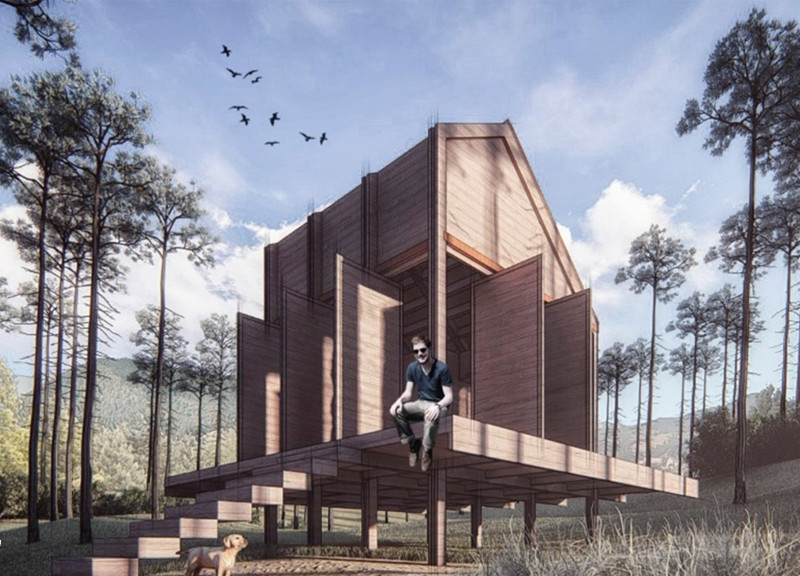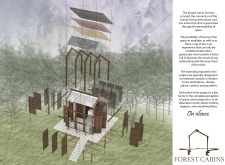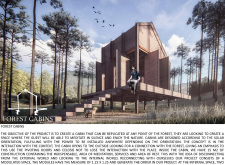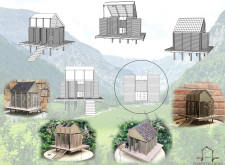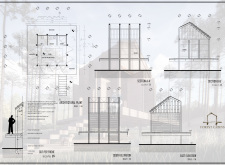5 key facts about this project
The Forest Cabins project is situated in a quiet woodland area, intended to create a strong bond between occupants and their natural surroundings. The design serves as a retreat for those looking for a peaceful space to meditate and relax amidst the forest. Architecture plays a key role in this project, with an open, inviting layout that connects interior environments to the landscape outside.
Design Concept
At the center of the Forest Cabins is the idea of being close to nature. Each cabin encourages interaction with the environment, promoting stillness and reflection. The layout focuses on creating areas for meditation and rest, allowing occupants to enjoy a calming experience. The modular structure of the cabins enables them to be replicated across various locations within the forest while ensuring optimal sunlight exposure.
Architectural Features
The design incorporates features that enhance the connection to the outdoors. Large windows and pivoting doors allow natural light to enter, while also providing views of the surrounding trees. Celosias are used to maintain privacy while ensuring occupants can still appreciate the landscape. This design approach encourages a strong relationship with nature, allowing individuals to feel immersed in the forest setting.
Material Choices
Materials are carefully selected based on a thorough understanding of the site. Key components include high-density polystyrene panels for insulation, along with wooden beams and planks. These choices ensure comfort and energy efficiency while blending into the forest environment. The wooden elements add warmth to the interiors, reflecting the natural characteristics of the area.
Design Details
Inside, the cabins have a well-organized layout that includes spaces for service, meditation, and rest. The modular design allows for efficient use of space, creating a sense of order. Specific design elements, such as the curves of the wooden beams and the way light filters through the celosias, enhance the occupant's experience. These thoughtful details create a calming atmosphere, inviting individuals to appreciate the tranquility of the forest around them.


